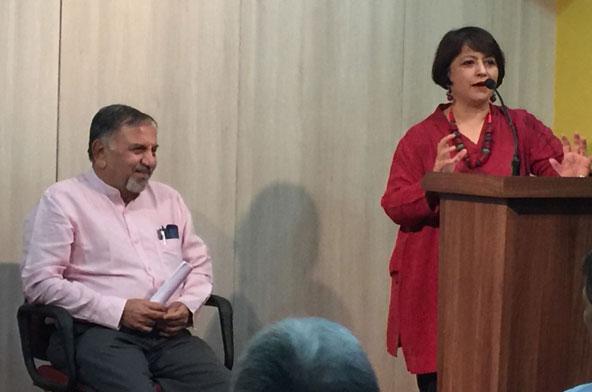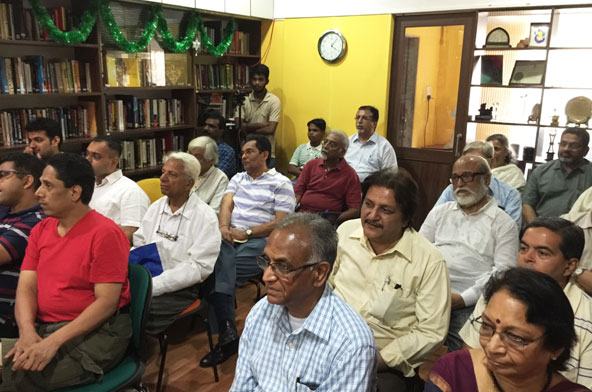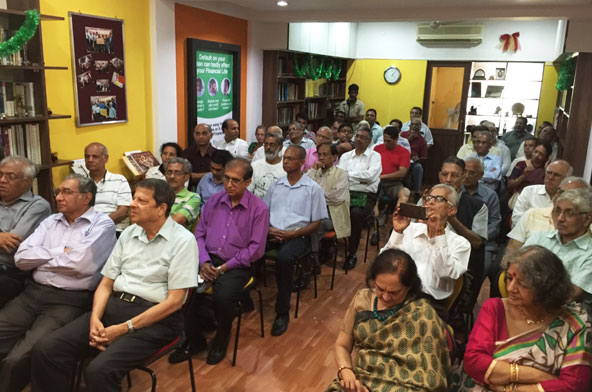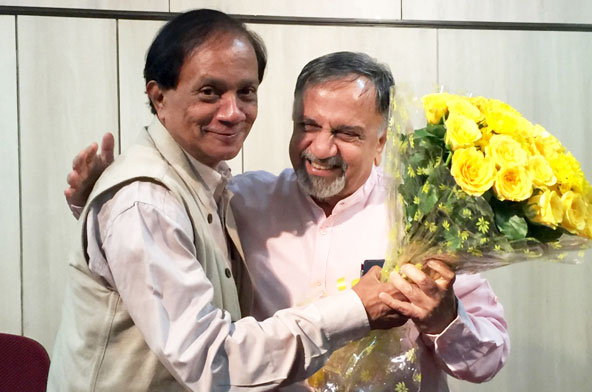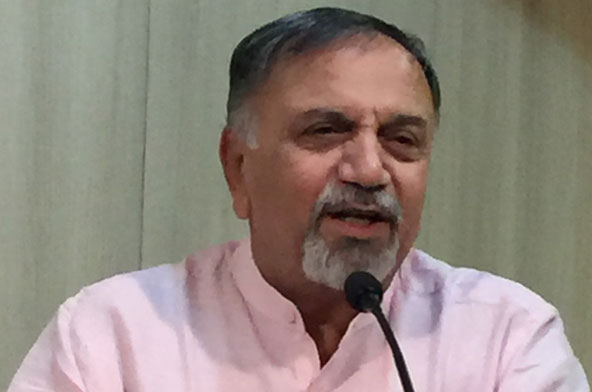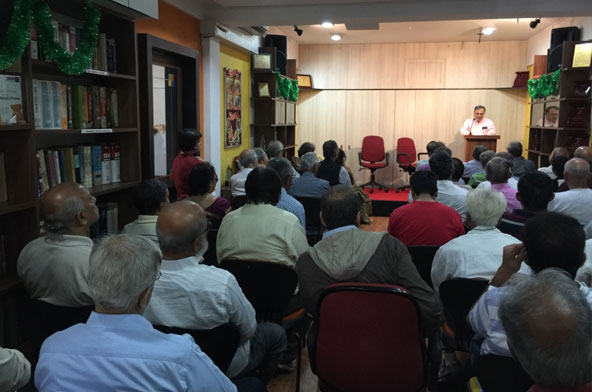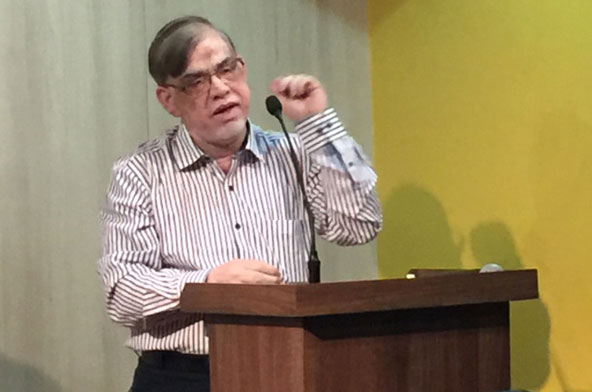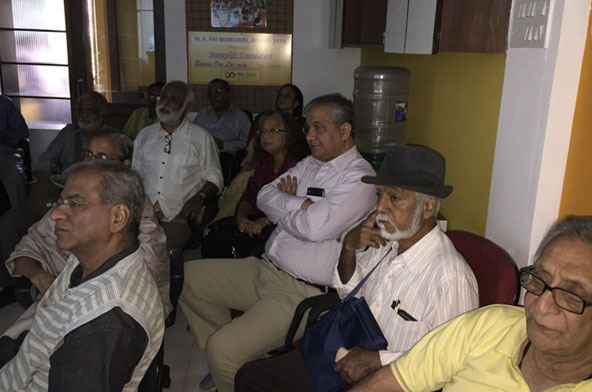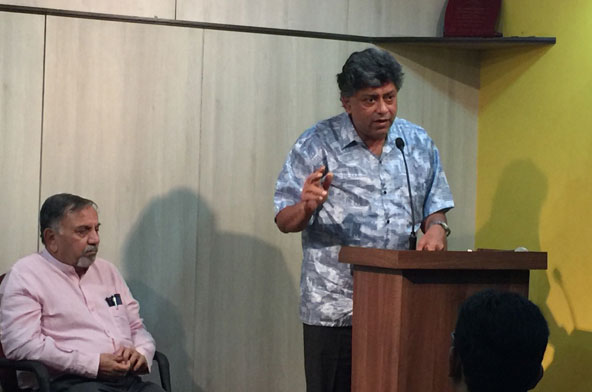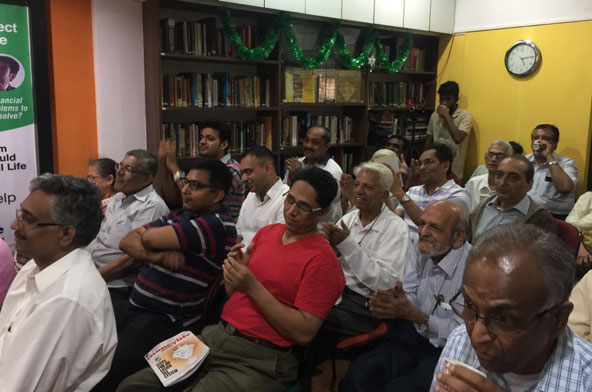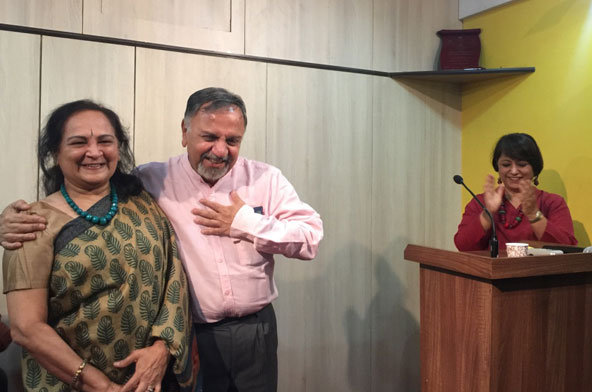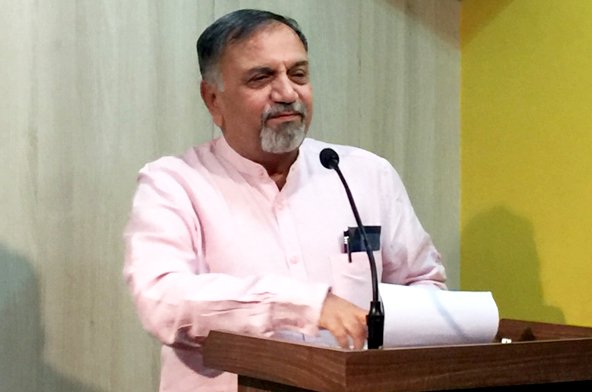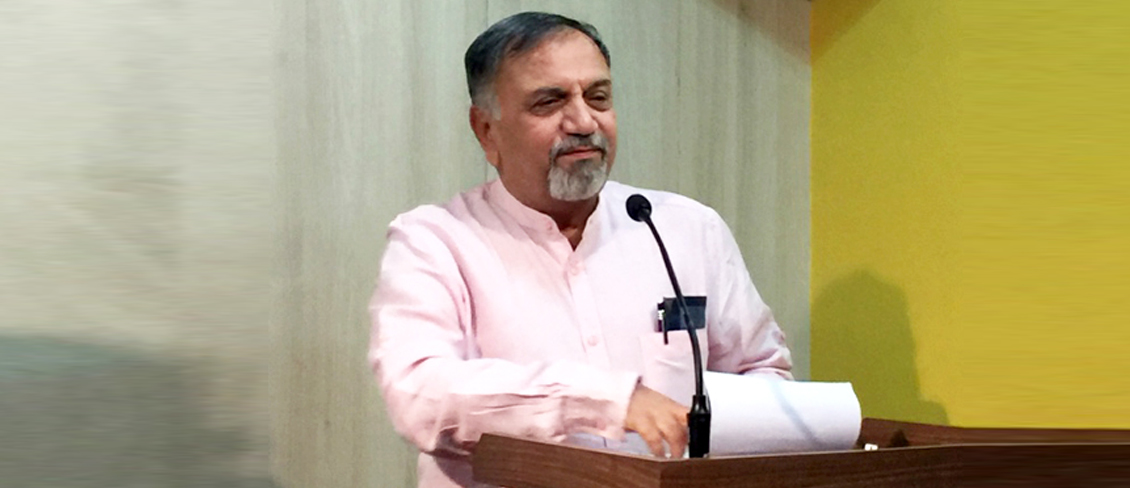
Mumbai’s activists, NGOs, lawyers and concerned citizens cutting across diverse areas of interest and specialization met on 20th December to felicitate Right to Information (RTI) activist and former central information commissioner (CIC) on a landmark judgement of the Supreme Court of India.
The Supreme Court (SC), hearing a set of 11 transferred cases, had said that the Reserve Bank of India (RBI) cannot withhold information citing ‘fiduciary relations’ under the Right to Information (RTI) Act. The apex court also said, the Central Information Commission (CIC) has considered elaborately the information sought for and passed orders which in its opinion do not suffer from any error of law, irrationality or arbitrariness.
Significantly, as many as 10 of these 11 orders, were issued by Mr Shailesh Gandhi, in his capacity as CIC. He is one of the only two activists who had been appointed a central information commissioner.
The SC Division Bench of Justice MY Eqbal and Justice C Nagappan also made some hard hitting observations about banks the RBI. It said, “From the past we have also come across financial institutions which have tried to defraud the public. These acts are neither in the best interests of the Country nor in the interests of citizens. To our surprise, the RBI as a Watch Dog should have been more dedicated towards disclosing information to the general public under the Right to Information Act. We also understand that the RBI cannot be put in a fix, by making it accountable to every action taken by it. However, in the instant case the RBI is accountable and as such it has to provide information to the information seekers under Section 10(1) of the RTI Act.”
Speaking at the felicitation held at Moneylife Foundation’s knowledge centre on the significance of the order, Mr Gandhi said that RTI activists can, henceforth cite the CIC orders and the SC judgment in their appeals, if denied information by RBI and other central institutions. The SC, he pointed out had extensively dealt with the two major grounds on which request for information are denied under sec 8(1) (a) of the RTI act – fiduciary relationship and economic interest. A third ground for denial of information, especially by the RBI, has been that pending investigations could be impeded – under Sec. 8 (2).
Mr Gandhi went on to outline some of the key issues that he is pursuing these days as a part of his activism. The first is computerisation of government records and putting them in the public domain. This is the simplest way to ensure transparency and reducing corruption in decision-making. The second is a book on RTI, the third is quicker delivery of justice through the legal system and the fourth is to reclaim open spaces for citizens.
On the issue of Open Spaces, Mr Gandhi pointed out that the Mumbai municipal corporation has proposed an ‘adoption policy’ for the open spaces under its control, which will allow various bodies to take possession of open plots and maintain them. He pointed out that several spaces, which were given earlier under such a scheme, have been usurped by private parties. This leads to the creation of private interests on public lands.
According to Mr Gandhi, the municipal corporation seems to treat open spaces as orphan lands despite having the resources to maintain them. This corrupt idea to allow ‘adoption’ of land needs to be opposed. The Brihanmumbai municipal corporation with an annual budget of 32000 crores has a provision of 200 crores for maintaining various grounds and gardens, which is not being utilised.
“Citizens must protest if they wish to retain control of these open spaces and should take a strong position by organizing meetings and interacting with the elected representatives”, said Mr Gandhi. He asked concerned citizens to meet at least three corporators/party leaders and asking why they support a policy to alienate our Open Spaces”. Mr Gandhi has put basic details on a website along with the names and contact detail of all Mumbai corporators, while urging citizens to join in large numbers to protect out scarce open spaces.
Mr Gandhi said that only active citizens, keeping tabs on the government will lead to an improvement in governance. Mr Gandhi’s talk was followed by an open discussion on what the implications of the judgment and on RTI itself. Among those who spoke on the occasion were Mr Vishwas Utagi, office bearer, the All India Bank Employees Association (AIBEA) who strongly welcomed the SC orders and was emphatic that bad loans would reduce only when the top management of banks was made more accountable. Mr Utagi mentioned how the AIBEA had defied the banking secrecy laws and started to publish the list of bank defaulters. Now that the SC judgement had thrown out the RBI’s secrecy on the grounds of ‘fiduciary’ information, he urged people to come forward to file more RTI applications and keep up the pressure on banks to be more fair and transparent in their dealings.


